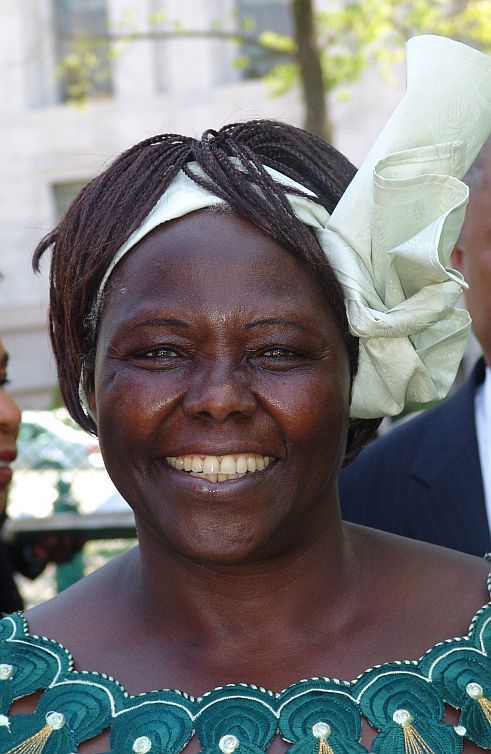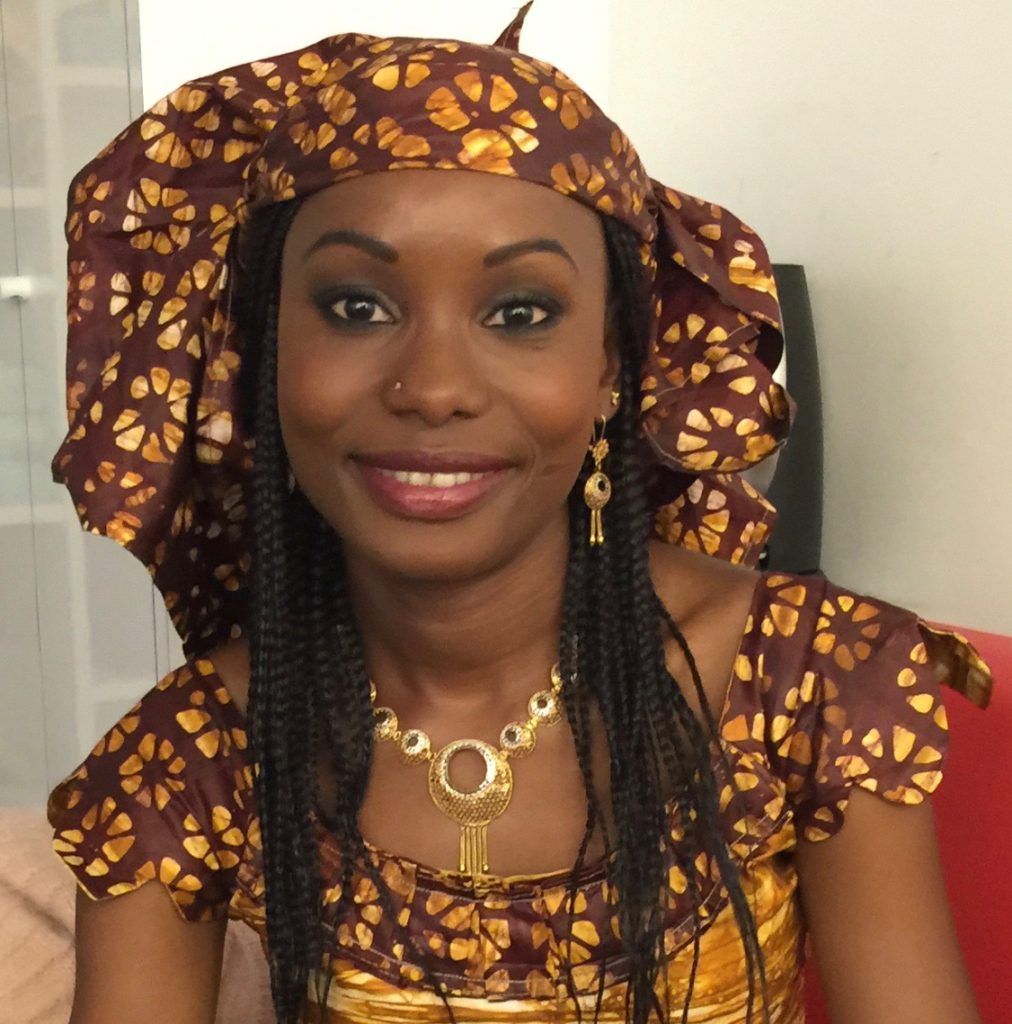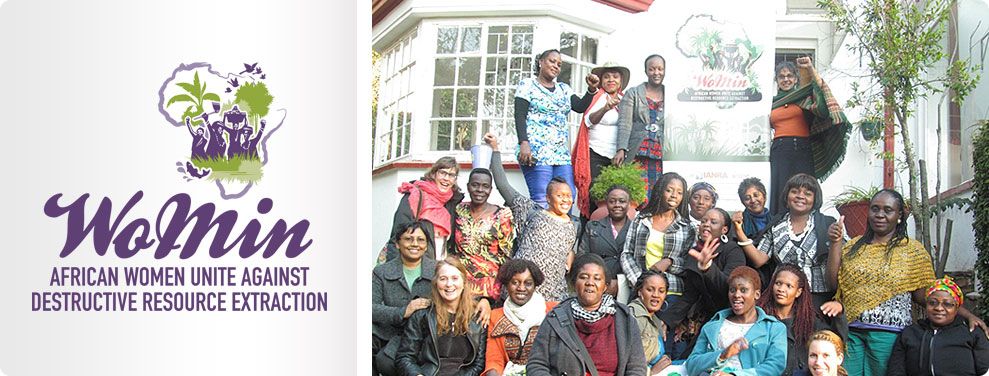
Women leading the resistance
Women disproportionately face the harshest impacts of the climate crisis, particularly Indigenous women, women of colour, and those in the Global South.
Ahead of International Women’s Day we want to celebrate all the women, including trans women, who are standing up and leading the resistance.
Let’s take a look at a selection of those who prove that no group, or individual, is too small to make a big difference.
Isra Hirsi
Isra Hirsi is a 16-year-old from Minneapolis, Minnesota. She is one of the co-founders and co-executive directors of U.S. Youth Climate Strike.
“I am a black Muslim woman in the environmental justice movement.
I grew up in Minneapolis, where the Somali population is visible. I went to schools with kids who looked like me and had the same culture as me — people I could relate to. Growing up in these predominantly black and Muslim neighbourhoods, I was always aware of who I was.
“When I first got involved in environmental work, I wanted to keep my identity and my community with me in my activism, especially given the droughts in my parent’s birth country, and the increased air pollution in my own hometown. But that hasn’t always been easy.
“When I joined my high school’s environmental club, I was the only black kid at most meetings, and usually the only person of colour. The club consisted of a group of white students talking about their camping trips. I knew that I would never fit in. It was difficult to look like their token and attend their meetings, but I kept going because I wanted to change that.
“Being the only person of colour in these spaces made me realize why it was so difficult for other people of colour. I remember, in late January, when we first started organizing the U.S. Youth Climate Strike, reporters would ask me, “So do you strike every Friday?” My immediate response to that question was, “No, and I’ll tell you why.”
“While striking is a powerful form of protest, there are many barriers that make it inaccessible. Being able to skip class that frequently, even if it’s for just a period or two, is not an option for many middle and high school students. Just getting to your state capitol or city hall, or anywhere symbolic, can be difficult, especially for youths of colour and low-income communities.
“So, no I don’t strike every Friday, because I can’t. But that doesn’t mean my activism is not valid. That doesn’t mean that the activism of thousands of youths across the world is not valid”.
Wangari Maathai
Professor Maathai was active in the National Council of Women of Kenya (1976–1987) and was its chairman 1981–1987. In 1976, while she was serving in the National Council of Women, she introduced the idea of community-based tree planting. Despite the derision of men within her community, she continued to develop this idea into a broad-based grassroots organisation, the Green Belt Movement (GBM), whose main focus is poverty reduction and environmental conservation through tree planting.
She was internationally acknowledged for her struggle for democracy, human rights, and environmental conservation, and served on the board of numerous organisations including UN summits.

In spaces that often denigrated women, she was continually outspoken on women’s rights. As a tireless activist, her husband began to resent her strong will and sought to divorce her. She was later sentenced to 6 months in prison after she publicly derided the judge who ruled in favour of her husband during the divorce proceedings.
She represented the Tetu constituency in Kenya’s parliament (2002–2007), was Assistant Minister for Environment and Natural Resources in Kenya’s ninth parliament (2003–2007) and was the 2004 Nobel Peace Prize Laureate.
In 2005 she was appointed Goodwill Ambassador to the Congo Basin Forest Ecosystem. The following year, she founded the Nobel Women’s Initiative and was invited to be co-chair of the Congo Basin Fund, an initiative by the British and the Norwegian governments to help protect the Congo forests.
She became a trustee of the Karura Forest Environmental Education Trust in 2010, and established to safeguard the public land for whose protection she had fought for almost twenty years, often at great personal risk.
Sônia Guajajara
Sônia Bone Guajajara is the national coordinator of Brazil’s Association of Indigenous Peoples (APIB) and a tireless spokeswoman for the country’s indigenous movement. She has been central in unifying more than 305 ethnicities to stand against attacks on indigenous rights. She was vice-coordinator of the Brazilian Amazon’s indigenous network COIAB for four years before taking on a national leadership position in Brasilia.
Sônia regularly confronts her adversaries from Brazil’s ruralista agribusiness bloc face-to-face, pushing back against their attacks on indigenous rights, livelihoods and lives.
She has spoken on these issues at the United Nations in Geneva and has led a series of related public events in Paris.
She has also been awarded the Order of Cultural Merit from the Brazilian Ministry of Culture, the 18th of January Medal by the Center for the Promotion of Citizenship and Human Rights Defenders, and the Medal of Honour of the Government of the State of Maranhão.
Nina Gualinga
Nina Gualinga is an indigenous woman leader of the Kichwa community of Sarayaku in the Ecuadorian Amazon.
The Sarayaku community has a population of about 1,250 people, and its lands cover more than 333,000 acres of mostly pristine forests. The community has continued to face severe violence, intimidation and arrest from the state and corporations who seek to dismantle the Sarayaku’s territory and rights.
Since the age of eight, she has been actively involved in local, national and global advocacy efforts in defence of indigenous rights and territories in the Amazon, and for climate justice. She has participated in various international fora, including the UNFCCC COPs (Lima, Paris, Marrakech and Bonn), the 2016 IUCN World Conservation Congress, and more, always advocating for the importance of protecting the environment and reducing global usage of fossil fuels.
Nina is also the co-founder of ‘Hakhu Amazon Design’: an initiative aimed at providing a unique opportunity to indigenous women in the Ecuadorian Amazon and beyond, using their cultural and artistic heritage in a way that protects their territories while providing them with a sustainable source of income.
The Brave Women of Kruščica
The ‘Brave Women of Kruščica’ campaigned to stop the destruction of their natural resources after the local government secretly planned and approved a hydro dam project in Bosnia and Herzegovina.
The controversial dams – Kruščica 1 and Kruščica 2 – would have significantly damaged the surrounding natural environment and the source of the village’s drinking water. The locals actively demonstrated against the hydro powerplants for almost 16 months and actively blocked construction work for over 400 days and nights.
As a result of the government secrecy and police repression, the women stood in local elections and won – reportedly the first time women have taken any of the Bosniac seats of the local community council.
In December 2018, the regional court of Novi Travnik upheld the villagers’ objections to the construction of the Kruščica 1 and Kruščica 2 hydro projects and the villagers have now registered an NGO which aims to start a campaign to turn the area into a protected nature space.
The Anti-Fracking Nanas
In August 2014, a collective of women dressed in yellow tabards and headscarves began to protest at an outfield site on the Preston New Road in Lancashire.
Although not all grandmas, they adopted the name of the Nanas as “a nod to trust, family and tea, leaning into stereotypes of northern matriarchy”.
Their first project was to capture a field under planning application by Cuadrilla, a UK fossil fuels company seeking exploratory drilling rights for shale gas. Jumping over the fence they set up tents and claimed squatters’ rights, staying for three weeks.
By the time they left (around 1000 days later!) the Nanas had earned the support of 14,000 local residents and appointments at Manchester’s High Court, and their action, with that of other campaigners, led to Lancashire County Council rejecting Cuadrilla’s fracking application.
Despite the decision being overturned by the then secretary of state Sajid Javid, the Nanas persevered and at the end of November last year, Cuadrilla announced that it would engage in no further fracking activity on the site before its licence expired.
Hindou Oumarou Ibrahim
Hindou is an environmental activist working on behalf of her people, the Mbororo in Chad. During her time at educational institutions, Ibrahim noticed how she was often discriminated against as an indigenous Mbororo woman.
As a result, she founded the Association of Indigenous Peul Women and peoples of Chad (AFPAT), a community focused organisation promoting the rights of women and girls and encouraging leadership on environmental protection.

She has also been a vocal adversary of exploitative extractive fossil fuel industries that attempt to push indigenous communities from their land.
She has collaborated with UNESCO and the Indigenous Peoples of Africa Coordinating Committee to create a 3D map that uses indigenous knowledge to chart Chad’s Sahel region, where the Mbororo community live. The map will be used to chart the region’s susceptibility to climate crisis-driven weather events such as drought.
WoMin
WoMin was launched in 2013 and is an African gender and extractives alliance. It works alongside national and regional movements and popular organisations of women, mining-impacted communities and peasants.

The organisation focuses on publicising and researching the impacts of extractives on peasant and working-class women, supporting women’s movement-building and solidarity, and advocating and campaigning for reforms that go beyond short-term reformism. The group pushes for longer-term structural changes and works in alliance with other African post-extractivist eco-just, women-centred alternatives.
WoMin actively challenges the structural oppressions that extractive industries utlilise, perpetuate and solidify, highlighting that:
“Extractivism has very particular impacts upon the bodies, labour, livelihoods and lives of peasant and working-class women in the Global South and increasingly also the Global North. WoMin addresses the substantial area of neglect in the work and activism of traditional natural resources, extractives, environmental and climate organisations and movements.
While the mainstream women’s movement has focused much of its attention on questions of violence against women (VAW), political representation and education, it has substantially failed to address the significant economic and social justice questions for African women that occur with this deeply exploitative mode of development.”
Here are just eight empowering examples of women who are fighting for fairness and what they think is right. If you feel inspired, or would like more information on how you can get involved with campaigning for the environment, get in touch with the FoES team to learn more.
This article was researched and written by Jess Cowell.
